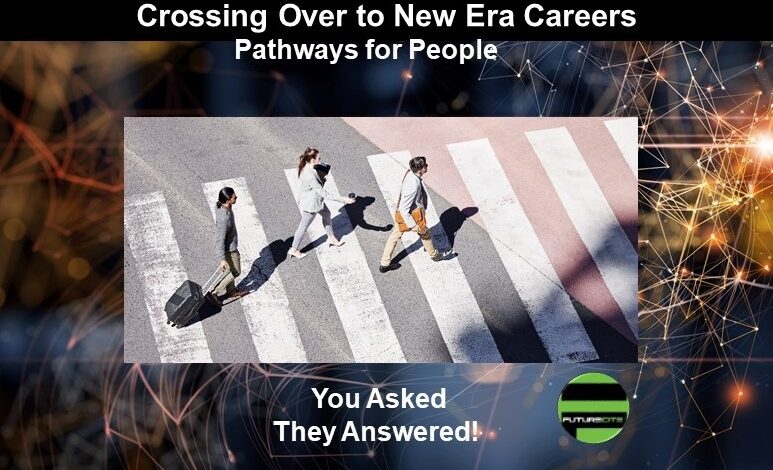
In the midst of this workforce shift there is chatter about AI and automation, people are asking “how that will impact their current careers and future opportunities?”
Industry sectors that are hiring focus on construction and healthcare – both which are considered part of “The Trades” for entry and frontline careers.
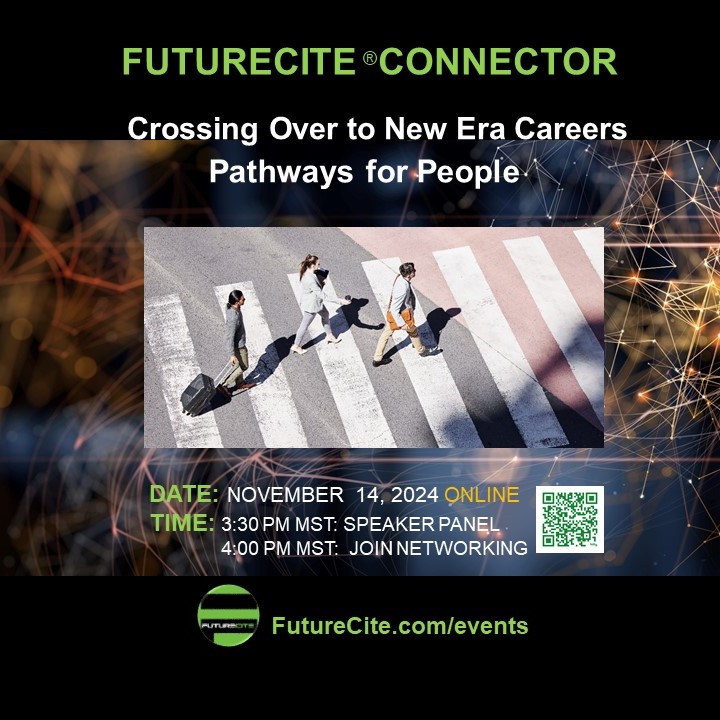
Who attended?
The increasing interest in upskilling to land in new era careers was evidenced with this sold out event – over 133 watching (with active participants on video in breakout rooms). Attendees were from global locations including 75% N. America (US and Canada, the UK, Ireland, Australia, India, UAE Emirates and Myanmar.
Ages range varied from youth to early boomers. Jobs we touched on ranged from marketing and communications, to A&E / construction and digital.
Following the expert panel fireside chat, attendees in breakout rooms had a chance to interact with the panel to learn about industry trends, specific areas where AI will impact jobs and where upskilling can open up new career opportunities. People were interested to discover types of new skills to close gaps, to enter, or re-enter the workforce, or change industry sectors.
What burning topics did speakers cover?
Three expert panelists answered three key questions during the Fireside chat, followed by one-on- one small group chats during the breakout sessions. Eva Borsato, CEO of FutureCite Inc, moderated this event.
Panel Speakers included
-
- Freddie Martinez CIO/CTO of Morgan Construction,
- Anna Nesterova CEO of AVA Medical, and
- Kathleen Couturier, Business Development, Lakeland College.
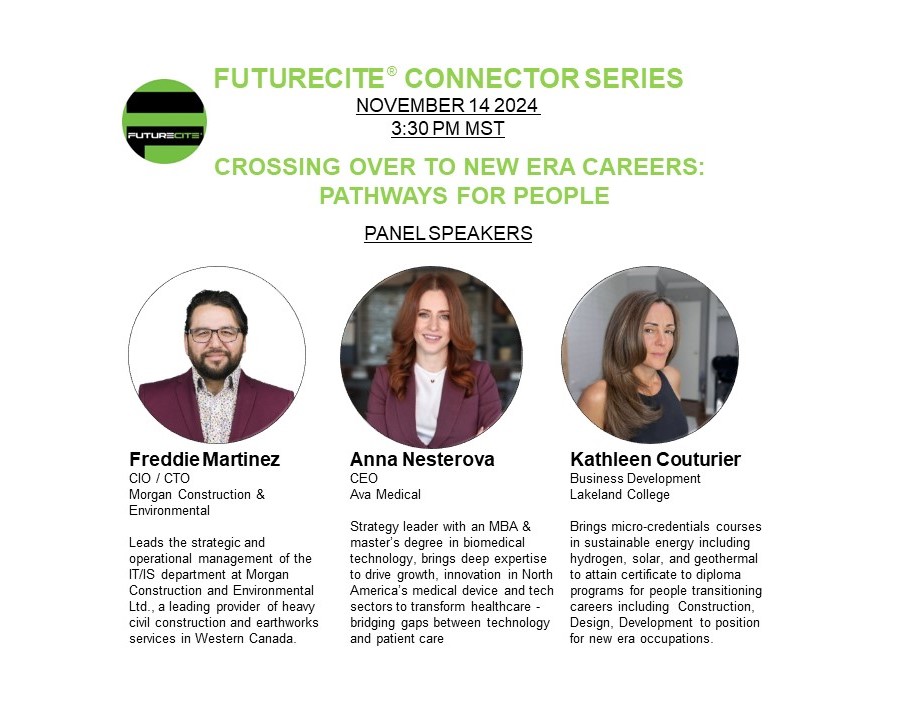
What were the Questions & Answers from the Speakers during the Fireside Chat & Breakout Rooms?

Freddie Martinez
Freddie, with your background in AI and Data, people in entering or transferring into this industry sector are probably curious about how AI may impact construction roles now and in the next few years. At Morgan, you also work with large corporate clients who also require operations of automated equipment.
- Question: Share with us what are the skill gaps that people may need to bridge in the new era of construction (and environmental) – from project management to estimation software, to working in the field with future AI enabled machinery. What types of human centric and technical skills will should they have to complement their current experience/ education?
- Answers: During our chat, Freddie covered the key aspects of software platforms that may apply in specific roles in the company (e.g. autocad) to the key element of project management and communication. AI is only a tool and will apply only where it will help workers to save time and costs, and to make their jobs easier. There is a high level of human interaction that is needed now and into the future …maybe even in 50 years to full automation? Training is key, as employees work with complex and automated machinery in specific roles. Culture fit is also key to finding the right Candidate fit for not just the company, but also for the role activities for each specific job / career. Role activities do change with time, and AI tools and processes become integrated over time (in construction). Overall team communications and collaboration are important to not only getting the job done, but as or more important to the safety of all workers.

Anna Nesterova
Anna, caring for people is very empathetic. AI and technology platforms and adoption of devices in healthcare can help to reduce the burden on healthcare workers in both continuing and acute care. Many healthcare students and professionals are curious as to how and what medical devices or technology can bridge the gaps to provide better patient care.
- Question: What types of the skills will future healthcare aides and nurses need to enable better empathetic care, and what skills they will need to lever Technology (examples) to improve patient care (and reduce unnecessary workload burdens)?
- Answers: Similar what Freddie shared, the healthcare sector will be impacted by changes in AI, at the tool level. Think of the virtual clinician services that are now offered for GP checkups (chatting with a GP or nurse practitioner as one example), or even something as simple as tracking your health via a smart watch or cell phone. At the patient to frontline clinical, the empathy and human to human connection is and will be still important. Clinicians and healthcare organizations are slower to adopt AI tools due to privacy, regulatory, or even the clinical practices of preferring to handwritten notes in charting instead if entering information into a device (e.g. electronic health records). This will take time to accelerate device and AI tool adoption – based on her experience in medical device marketing and sales to healthcare organizations and companies.

Kathleen Courier
Kathleen, development of sustainable energy takes many forms, from traditional Oil and Gas to hydrogen, solar and geothermal, there is an interest from students to professionals seeking to shift or add to their skill base to secure work in the economic era.
- Question: Can you share a few stories of some of the people who did transition and / or advanced their careers by upskilling with micro-credentials?
- Answers: Micro-credentials can help people enter the workforce by upskilling to advance their careers or change occupations. In the examples cited, micro-credentials are an efficient way for people with backgrounds in construction to transition and get the skills they need for occupations in solar, bioenergy, biofuels, building efficiency, and geo-exchange industries. Lakeland also has healthcare programs such as healthcare aid and university transfer to become registered nurses. Programs are well-rounded and build on communication and critical thinking skills, both important for the construction and healthcare sectors.
Kathleen also spoke about real people who have taken the microcredentials at Lakeland College and shared their success stories in advancing their career pathways!
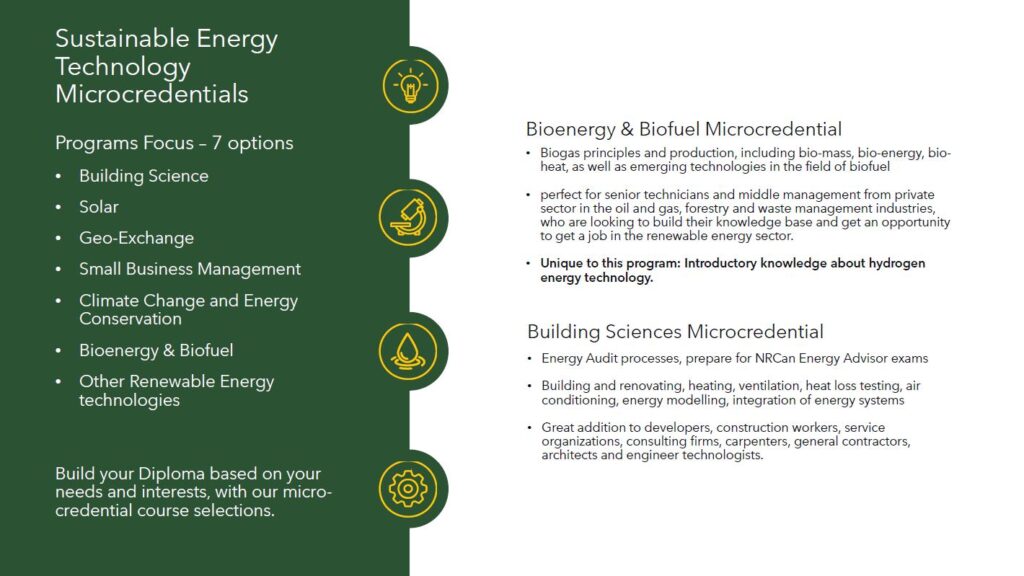
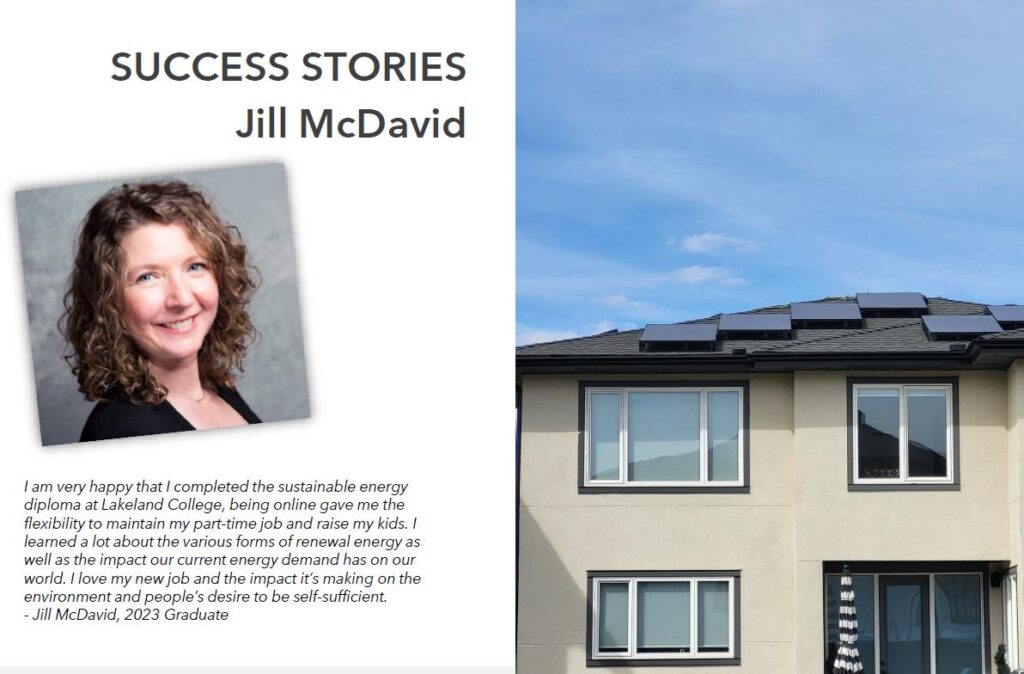
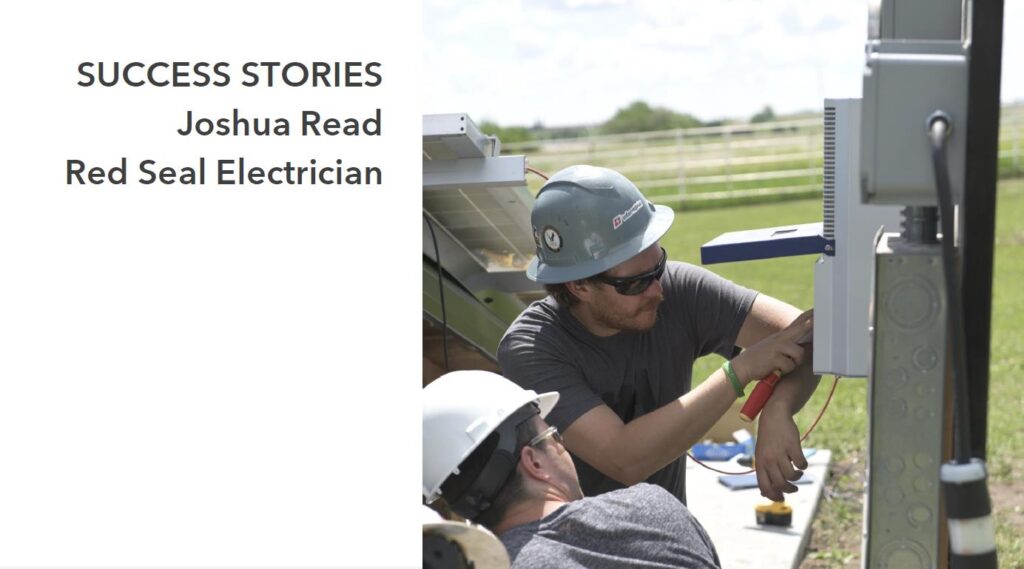
Summary
At the present, frontline job role activities in Construction and Healthcare require highly tuned human to human communications– differentiated from the highly paced acceleration of AI and device adoption in other industry sectors like finance and some professions.
Check out other stories and videos! https://futurecite.com/category/featured/
What this mean? Well, for now, AI may impact certain aspects of activities in certain roles in specific industry sectors where the activities are routine and can be automated. While the integration of AI into devices, and the eventual integration into workflow activities will improve future productivity – its key value lies in when, and where it saves time and costs. Example? Think of where and how automation will be able to reduce the routine burden off workers, improve safety and to give back to the people the opportunity to better utilize their time more effectively and efficiently – at work, home and at leisure.
In short, the value to humans is where AI can improve human wellbeing, reduce burnout and churn, prevent worker injury. Enable and open future opportunities for more quality and time for human to human interaction, creativity and decision making, where people can lever the right innovations at the right time to build a better world for tomorrow.
Want to be part of the movement? Stay tuned for our Save the Date Events starting in Q1 2025! https://futurecite.com/events/
About FutureCite
We help Companies to personalize Candidate Fit to the right Careers and to the right Course choices to bridge skill gaps – all in a one stop AI powered platform and without CVs. We partner with companies, recruiters and course creators.




